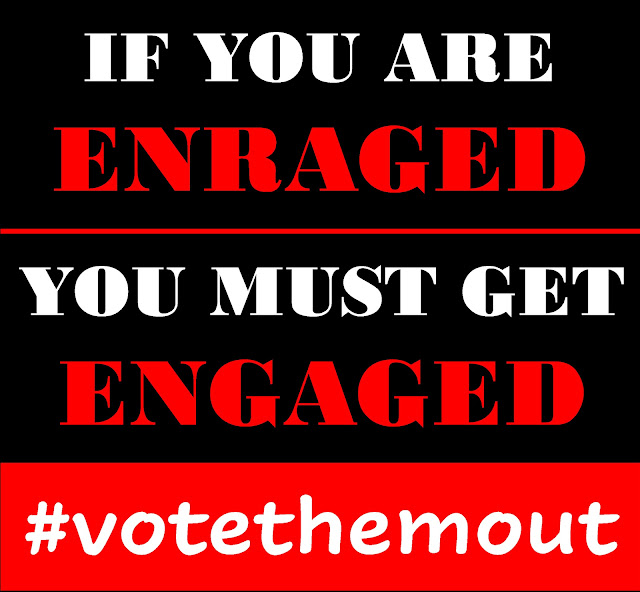NIGERIAN YOUTHS MUST GET ENRAGED AND FULLY ENGAGED
From the cradle to the grave, the life of the average Nigerian is that of toil and misery. Right from the start of life, while still in the womb of his mother, the Nigerian child is at risk of never being born. Those that survive the perils of the mother’s womb and are born alive, may never live long enough to reach the age of 5. Those that live beyond 5 years old grow up to quickly realize they are confined to a life where there is never going to be enough food to eat, and hunger is a constant companion.
If, by some divine intervention, they make it to adulthood, they are more than likely to end up poor. With 70 million living in extreme poverty, Nigeria is second only to India as the poverty capital of the world. Nine out of every 10 (i.e., 90%) Nigerians are poor.
Ten million school-aged children are not enrolled in any formal school. Over 90% of Nigeria’s out-of-school children are in the North. Only 20% of Nigerian adults between 18-37 years who completed primary school can read. That number is 80% in Tanzania.
Nigerian schools are of horrendously substandard quality, characterized by inadequate infrastructure, and grossly insufficient teaching and learning materials. Many of the teachers do not have adequate content and pedagogy knowledge (i.e., the study of how knowledge and skills are to be imparted in an educational context, and it considers the interactions that take place during learning).
Nigeria spends less on health than most other governments in the world. The government’s public spending on health care amounts to just 3.89% of its $495 billion GDP, compared to 8.25% in South Africa and 5.17% in Kenya.
With 47% of the population being poor, Nigeria has the second highest poverty rate amongst its peers. Yet it has the lowest public spending, 0.3% as percentage of GDP, on social protection. The coverage of programs specifically targeted to poor and vulnerable households is limited, meeting only a small fraction of national needs.
Nigeria has one of the highest unemployment rates in the world. Four out of every 10 people in Nigeria's workforce are either unemployed or underemployed. The combined unemployment and underemployment rate is 40 percent of the total labor force. The Nigerian youth (15-35 years) make up 60% of the Nigerian population. Youth unemployment stands at an eye-popping 53 percent. In the north, the unemployment rate is upwards of 70 percent.
Nigerian tertiary education institutions are estimated to produce up to 500,000 graduates every year. The economic future and social stability of Nigeria is definitely vulnerable to the existential risk of having about 2.5 – 3 million young Nigerians annually enter the labor market without the prospect of jobs for about 40% of them.
About sixty percent (i.e., 3 out of 5) of Nigerian graduates earn less than N50,000 ($139) as their first job monthly salary. Upon getting a later job, that number falls to 2 out of 5 (a little above 40%). Overall, most recent graduates earn between N20,000 to N49,999 ($56 to $139) in their first job after graduation while for their later job salary, most earn between N50,000 to N99,999 ($139 - $278) in monthly salary.
Access to clean water and improved sanitation facilities is a daily challenge for many Nigerians. This problem is particularly acute in northern Nigeria, where only 30 percent of the population has access to safe drinking water and adequate sanitation.
Nigeria has an estimated 24.4 million homeless people. In 2018, 613,000 people were displaced due to natural disasters, and a further 541,000 due to violence and conflict.
One in ten Nigerian will be abducted in their lifetime. The likelihood of getting kidnapped for ransom is one of the highest in the world. And the chance that someone you know will get kidnapped is even higher.
In a 15-month period between December 2020 and March 2022, close to 1,500 school children and 17 teachers were abducted from schools. Kidnapping has become a booming entrepreneurial endeavor in Nigeria. More than N12 billion ($20 million) was paid to kidnappers in ransom from June 2011 and March 2020. Of the $20 million, about half was paid out between January 2016 and March 2020.
According to the Hanke’s Misery Index 2021, published in May 2022, Nigeria, with a Misery Index of 59.4 percent, ranks as the 11th most miserable place to live in the world out of 156 countries. It is the 4th miserable place to live in Africa behind only Sudan, Zimbabwe, and Angola, which rank 1st, 2nd, and 3rd.
Nigeria is standing at the very edge of a precipice. It is barely hanging on by the skin of its teeth. All it’ll take for the country to careen down the cliff into the abyss is a slight push. That the country is still even standing at all, after many years of abuse and several decades of misuse, can only be by the grace of God.
Brutish and boneheaded, however, Nigeria takes the grace of God for granted. For all the abundance of blessings that God has showered on it, like the prodigal son, Nigeria fritters it all away and find itself among the pigs mired in morass. Since it gained independence, the arc of the country has progressively bent towards excruciating misery and has maintained a trajectory destined for certain gloom and definite doom.
If they want to have a country tomorrow, Nigerian youths must put up a fight for it today. If they are enraged by the devastation of their daily living, they must get fully engaged in the democratic process. The youths must get their PVCs and vote for people who’ll best represent their interests.



Comments
Post a Comment